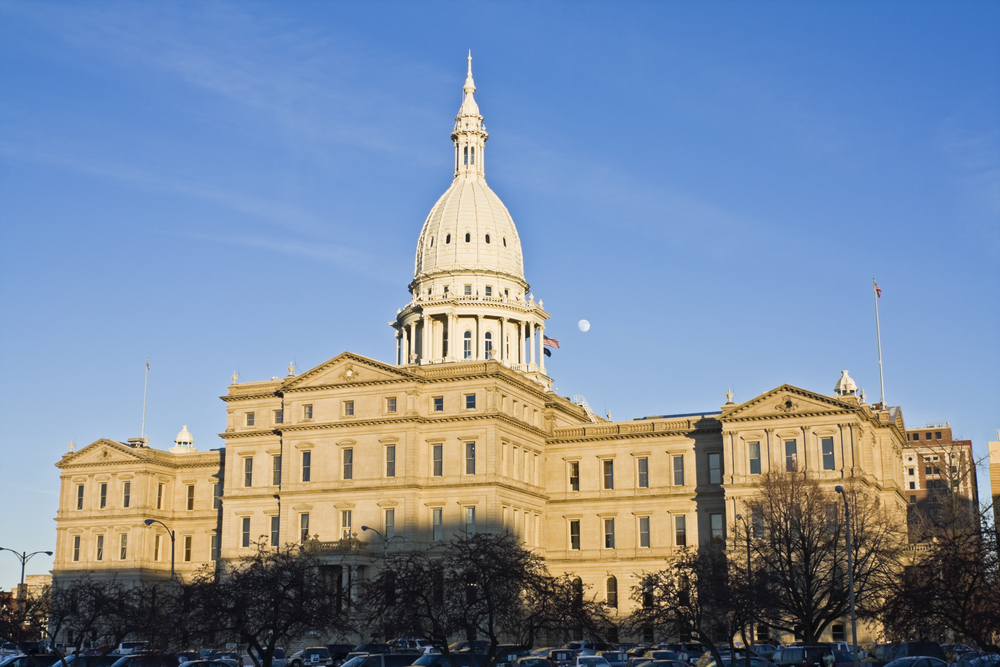
State Capitol (deposit photos)
Michigan lawmakers can only stick around so long, thanks to term limits. That goes for state lawmakers in Lansing, the governor, lieutenant governor, secretary of state and attorney general.
It was supposed to be a good thing. But Eric Lupher, president of Citizens Research Council of Michigan, writes in Bridge Magazine that the concept has been a failure:
Twenty-five years ago, term limits proponents persuaded Michigan voters that limiting legislators’ tenure in office would revitalize American democracy. Scored against the improvements promised by those proponents of term limits, there is little indication that term limits have delivered on those promises.
Term limits have not made elections more competitive. Incumbents are safer and open seats are less competitive, with more voters in highly competitive districts confronting one hand-picked candidate in the primary. It is difficult to assess whether term limits have expanded opportunities for ethnic minorities because gerrymandering has reduced the number of districts with high concentrations of them. The number of women legislators increased immediately after the adoption of term limits, but has subsequently returned to pre-term limits levels.
Term limits have not severed cozy relationships between legislators and lobbyists. Legislators indicate that they rely on organized groups and lobbyists, partisan staff, bureaucratic staff, and non-partisan legislative staff as key providers of information on the bills they are considering in committee deliberations. These sources are sometimes accused of being part of the swamp that term limits proponents railed against.
Before term limits, local officials were an important source of information and guidance to legislators. After term limits, the interest groups that recruit candidates have become key sources of information and guidance. Legislators from both political parties have become more extreme than their constituents. Political parties have become more polarized, moving away from each other and, more importantly, away from their voters.












